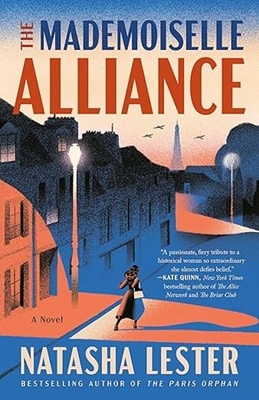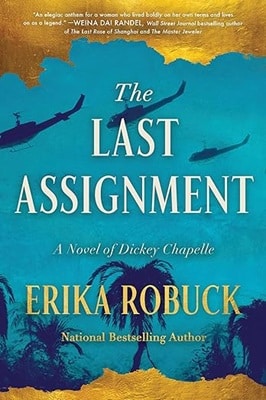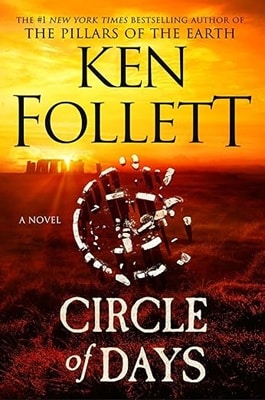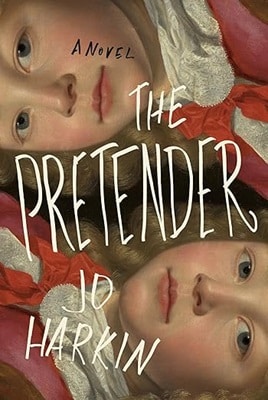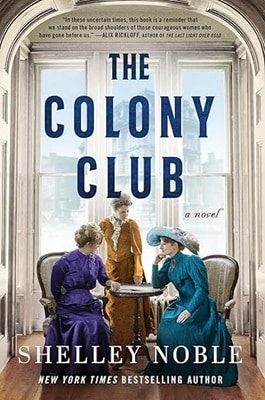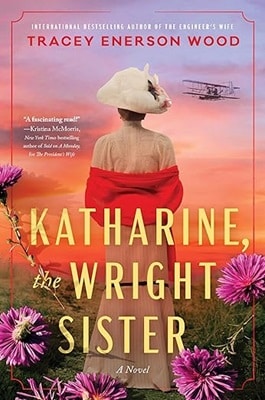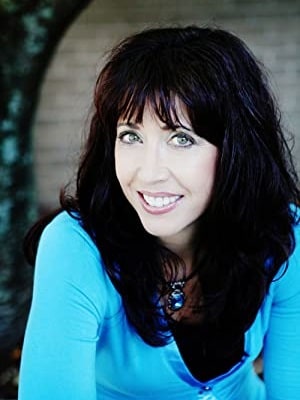
Renee Ryan is the author of thirty novels and counting. She sold her first book in 2001 by winning the inaugural Dorchester/Romantic Times New Historical Voice Contest. She published her second book with Harlequin’s Love Inspired Historical and has since sold books to other Harlequin imprints and to Amazon’s Waterfall Press.
Renee grew up in a Florida beach town where she learned how to surf very poorly. Armed with a degree in Economics and Religious Studies from Florida State University, she explored various career opportunities, including stints at a Florida theme park, a modeling agency, and three cosmetic conglomerates. She went on to teach high school AP Economics, AP American Government and Latin while coaching award-winning cheerleading teams. She currently lives in Madison, Wisconsin with her husband and a large, fluffy cat many have mistaken for a small bear.
Q: Reflecting on the emotional response of many people to the events of October 7th, it seems they find a connection with the characters in your book who also feel helpless, scared, and angry. One striking example is a quote from Rachel, a Jewish character, who says, “This enemy, these new Germans are hardened, angrier, and more ruthless. Hate lives in their heart. Hate for people like us.” Her father’s claim, “We are French citizens,” is met with Rachel’s poignant, “No papa. We are Jews.” Can you share your perspective on how these lines capture the essence of the era and resonate with today’s readers?
Renee: For me, that quote summed up the Holocaust with the evil of how people looked the other way and rationalized and pretended that nothing was happening. I thought when I wrote that quote about the 1940s, ‘what is wrong with these people. How are you missing this.’ Even though I am not Jewish I wondered why did so many just look away. Today it is happening all over again, where people just turn and look the other way. History is repeating itself. People are saying it is a two-sided conversation and this is so untrue. It is a one-sided conversation. Everyone should be supporting our Jewish allies and our Jewish people in this country. We should not allow genocide to happen again. We should not be looking away. It is about people who are our friends, colleagues, and I wonder why we are not standing next to them shoulder to shoulder.
Q: Another impactful quote in your book is where people are described as “clinging to a lie and calling it hope.” Could you explain the context of this quote and how it reflects the mindset of people during that historical period?
Renee: I wanted to show in the book how people thought it will not happen to me. It will only happen to those who are not French born, or it will only happen to the poor, not the wealthy, or it will only happen to people without connections, not us. The goalpost kept moving. Laws in France kept changing during the occupation. It was not the Germans, but the French that were doing the roundups of the Jews and passed the harsh laws towards them.
Q: Do you believe that the sentiments expressed in these quotes are still relevant today, especially in light of recent events like those on October 7th?
Renee: Yes. I wrote this book a year ago. I thought I was writing these quotes about what happened fifty, sixty, seventy, eighty years ago during the Nazi reign. I cannot comprehend that these quotes can be applied to October 7th. It is so heartbreaking. Have we not learned anything. It is very similar to what happened. It is the same rhetoric, the exact same things said in the 1930s, 1940s. It led to all the antisemitism and for people to look away. People do not want to educate themselves. They only listen to the propaganda about the Jews. I have a quote in the book, “Good people should stop looking the other way and stand up to evil.” People should stand up with Israel. Nothing can be justified.
Q: Where did the inspiration for this story come from? Was there a particular event or piece of history that sparked the idea for your book?
Renee: There was a news article about Irene Gut. She had a tragic life. She became a housekeeper for a Nazi official in Poland. She hid nine Jews in his basement, and they all survived two years of hiding. This was the jumping off point. What would it be like for someone working in a home and hiding Jews right under the nose of someone trying to wipe them out.
Q: Could you describe the character of Camille in your book? What are her defining traits and how do they shape her journey in the story?
Renee: Trustworthy, loyal, decent, guilty, and courageous. She was relieved to be in Paris away from the stress of her family. She felt guilty of being relieved that she was not guilty. She struggled with it. She was conflicted and eventually decided to take a stand.
Q: In the narrative, what role does Jacqueline, Camille’s sister, play? How does her character contribute to the overall theme of the book?
Renee: She represented the mentally ill. There is a scene in the book where Camille discovers the German euthanasia program with the mentally ill. It was refined and then applied to the Jews. The sister represented that part of the German history.
Q: How would you describe Rachel, the Jewish character in your story? What makes her an integral part of the narrative?
Renee: Innocent, helpless, sweet, not a complainer, has a sense of powerlessness because she is scared and bitter. She also feels humiliated, angry, and is being persecuted. Her anger is her saving grace because without it she would not have survived. The anger is what drove her. While she was fearful and felt helpless, she was also very angry that had her trying to figure out how to escape.
Q: Vivian is another central character in your book. Could you delve into her complexity and the role she plays within the story?
Renee: She is responsible, direct, lonely, and at an earlier age suffered mental and physical abuse. She was also confident and passionate yet could be very selfish and self-centered. In some ways she was the villain yet at the same time she was an anti-hero. I would not call her a hero. She represents those people today who say if I do a little bit then I am still good. She justifies rotten behavior by a few good acts. She wanted to believe ‘if I do a few good things that erases all the bad.’ Although deep down she knows that is not true. She also makes a really bad decision.
Q: In your story, how would you describe the Nazi SS officer Von Bauer? What are his key characteristics and how do they influence the plot?
Renee: He is controlling, an opportunist, ambitious, driven, and possessive. Regarding Vivian he is obsessed with her, likes to steal her dignity, cruel, and demanding. He represents the abusers of woman. He was to Vivian the ‘devil you know.’ At times she saw in him comfort and familiarity. He was bad because he was a Nazi.
Q: The nicknames ‘The Snow Queen’ for Vivian and ‘The Raven’ for Von Bauer are quite evocative. Could you explain the significance of these nicknames in your book and what they symbolize about their characters?
Renee: It comes from the Nordic folklore fairy tale. They were always in battle. I think it was a perfect metaphor for their relationship. They were going to battle until one survived. Both characters in the fairy tale are evil. Their relationship was based on a tug of war, like a weird chess game.
Q: Was there an actual historical basis for the American government freezing the accounts of Americans overseas during the time period depicted in your book?
Renee: Yes. Laura Mae Corrigan was a real person they did it to. It was very much justified. She was very much a Vivian type character, an ex-Patriot living in the Ritz. She left the Ritz because they took her money. But Vivian stayed at the Ritz because she had a plan. The Ritz was not shut down because they remained neutral.
Q: In your story, how do the relationships between Vivian, Rachel, and Camille intertwine, and what significance do these relationships hold within the larger narrative?
Renee: The Ritz brought them together as three people trying to survive the war. They are not really friends. Rachel and Camille are more friendly. They need each other. Camille and Rachel see their families as number one, while Vivian has no family. Vivian is number one to herself. They help each other but always will consider their family first.
Q: Can you give us a glimpse into your next book? What is it about and when can readers expect it to be released?
Renee: It is titled The Last Fashion House in Paris and will be out this time next year. The setting is occupied Paris. The character from my first book, The Widows of Champagne, Paulette, has her story on what happened to her during the banishment to Paris, the final two years of WWII. She must redeem herself.
The Paris Housekeeper by Renee Ryan is very relevant today. After the October 7th Hamas massacre of Israeli civilians that included the raping of women and children, burning babies alive, and brutal torture, readers will understand why people have dubbed this the Holocaust of the 21st Century. Ms. Ryan has a knack for getting into the minds and hearts of her readers.
In this story there are three main characters who become connected through the world-famous Hotel Ritz after the Nazis occupied Paris in 1940. It is a multi-narrative story where readers can see events from several different views. Three women from different socio-economic backgrounds are thrust together. Vivian Miller, a glamorous American socialite widow is chosen by the SS officer Gunther Von Bauer to be his mistress. Both she and he are residing at the Ritz. She appears to be a Nazi sympathizer but is working behind the scenes to help French Jews escape. Camille Lacroix, a chambermaid at the Ritz, becomes his household maid to support her family back home in Brittany, especially her sister Jacqueline who has emotional issues. Rachel Berman is Camille’s Jewish co-worker and needs her help to survive. Knowing that Vivian can help, Camille turns to her to help save Rachel and her mother.
The plot is very powerful and moving. There is suspense and tension as readers take the journeys with the characters. Some of them are brave, resilient, courageous, while others are self-absorbed and cruel. The twists and turns enhance this very captivating read.

